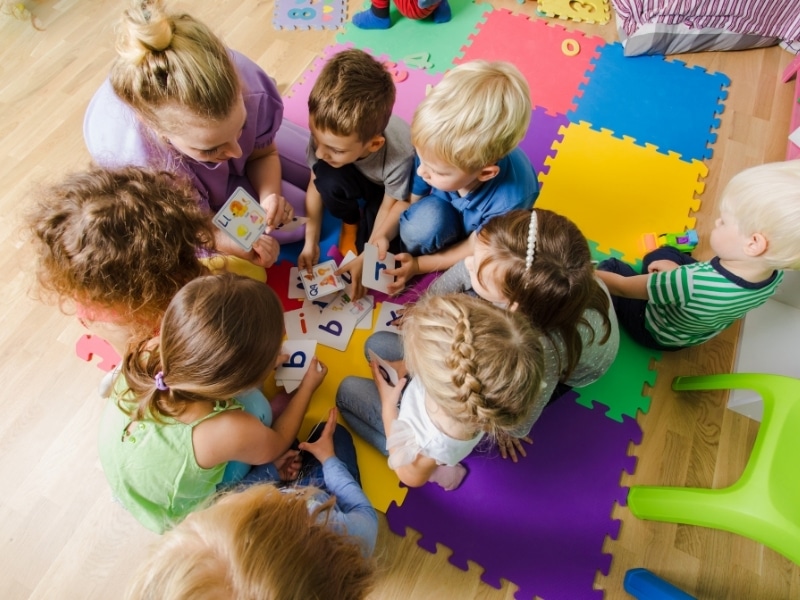What Makes the Best Preschool Programs So Popular?

Preschool programs play an essential role in shaping children’s early development. They are a foundation that nurtures creativity, curiosity, social skills, and cognitive abilities. But what makes some preschool programs stand out from the rest? This article explores the factors that make the best preschool programs popular and why parents flock to them for their young children. From qualified educators to a structured curriculum, we’ll delve into the reasons why parents value certain preschool programs and what sets them apart.
What defines the best preschool programs today?
The best preschool programs are defined by their ability to foster a balanced, engaging, and nurturing environment for children. Here are some defining factors that make them stand out:
- Play-based learning: A focus on hands-on learning experiences, such as play, is crucial for helping children develop skills through exploration and creativity.
- Individual attention: Smaller classes ensure children receive more personalised care and attention.
- Structured curriculum: A comprehensive and flexible curriculum helps children develop essential cognitive, social, and motor skills.
- Safety and well-being: Top-tier preschool programs maintain high safety and cleanliness standards, ensuring children are in a secure environment.
- Parental involvement: Best programs encourage active participation from parents, fostering a partnership between home and school.
The best preschool programs combine qualified educators, play-based learning, and a well-rounded curriculum, offering children a supportive and engaging learning environment. These elements ensure that children get the best start in life.
Why do parents prefer certain preschool programs?
Parents often face tough decisions when choosing quality preschool programs for their children. So, why do some preschool programs stand out? Here’s why parents tend to favour specific programs:

- Reputation and reviews: Word-of-mouth and positive reviews from other parents can significantly influence a parent’s choice.
- Location and accessibility: Convenience plays a role—preschools near home or work are often more desirable.
- Cost vs. value: While price is a factor, parents are more likely to invest in a program that offers excellent value for their child’s development.
- Support for special needs: Programs that cater to children with special needs are highly valued for their inclusivity and support.
Parents prioritise preschools with a strong reputation, child-centred programs, and convenient locations. They also look for those that offer holistic development, including social and emotional growth.
When should you start looking for a preschool program?
Timing is crucial when selecting the right preschool program for your child. Here’s when you should start your search:
- Researching early: Starting early allows you to visit multiple schools, attend open days, and gather ample information about the curriculum and educators.
- Waitlists: High-demand preschools may have long waitlists, so early application is essential.
- Transition period: If your child is transitioning from home or daycare, starting the process early allows them to adjust to preschool.
Begin your search for the best preschool programs 6-12 months before your child is due to start. This gives you time to explore options that support early education and child development, understand waitlists, and make a well-informed decision.
Is there a difference between childcare and preschool?
When choosing early childhood education options, many parents often wonder whether there is a significant difference between childcare and preschool. While both provide essential care and learning opportunities for young children, they serve different purposes and offer distinct approaches to early development.
| Feature | Childcare | Preschool |
| Purpose | Supervision and care for young children | Structured learning and early education |
| Focus | Basic needs and safety | Cognitive, social, and emotional development |
| Age Group | Infants to toddlers | 3 to 5-year-olds |
| Hours | Flexible, often full-time | Typically part-time, during school hours |
| Curriculum | Minimal or informal learning | Structured, educational curriculum |
In summary, childcare and preschool play important roles in early childhood development, but their primary focus differs. Childcare centres focus more on care and supervision, while preschools emphasise structured educational experiences for children, especially in areas like cognitive and social development.
Who’s behind the best preschool programs?
Behind every great preschool program, there are passionate, well-trained educators and staff. Here’s who you can expect to find in the best preschool programs:

- Experienced teachers: Preschool educators are often trained in early childhood education and have experience working with young children.
- Support staff: Many top preschools employ additional support staff, such as teaching assistants and specialists, who can help address children’s individual needs.
- Management team: Strong leadership ensures the program’s vision, values, and quality standards are maintained, contributing to a positive learning environment.
The best preschool programs are led by a team of skilled teachers, support staff, and a strong management team, all working together to create a positive, educational experience that delivers the developmental benefits of early childhood education.
How do the best preschool programs support early learning?
The best preschool programs are designed to support a child’s early learning in various ways. Here are some strategies used to foster early learning:
- Hands-on learning: Play-based activities allow children to explore and learn through touch, interaction, and problem-solving.
- Social skills development: Encouraging peer collaboration to develop communication, empathy, and teamwork.
- Cognitive growth: Structured language, literacy, and numeracy lessons that align with a child’s developmental stage.
- Physical development: Outdoor play and movement-based activities to promote fine and gross motor skills.
- Creativity: Art, music, and dramatic play are often integrated into the curriculum to encourage creativity and imagination.
The best preschool programs support early learning through play, structured lessons, physical activities, and creative experiences, all designed to nurture the child’s overall development.
Conclusion
Choosing the right preschool program is crucial for your child’s development. The best preschool programs combine qualified educators, a play-based learning environment, and a structured curriculum to foster a child’s growth. With the right preschool, your child will develop essential skills that lay the foundation for future success.
If you’re seeking a preschool that fosters your child’s growth and development in a supportive and nurturing environment, explore the programs offered at Innocent Minds, designed to inspire young learners and support their unique developmental needs.
